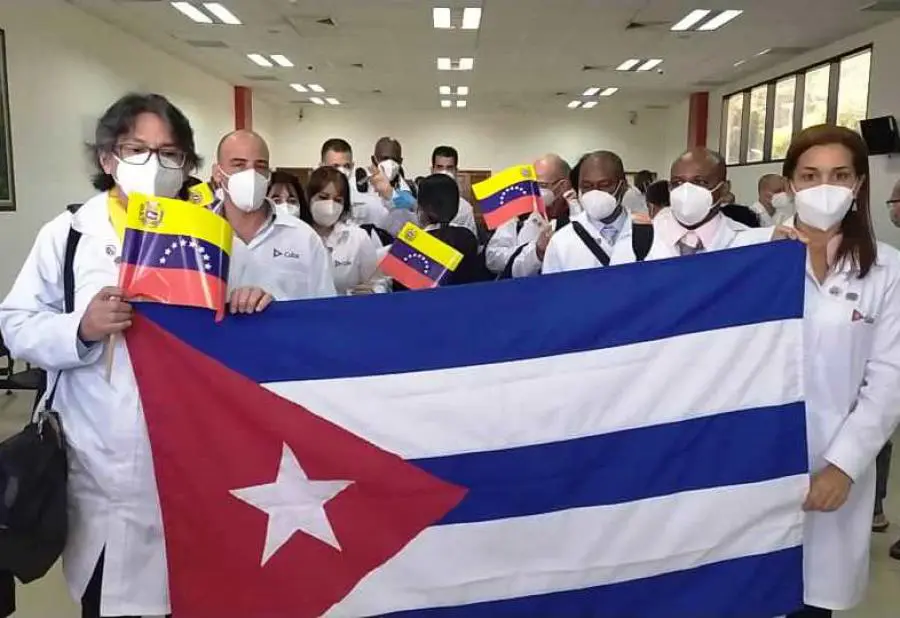Mexico City, Mexico, February 26, 2025 (venezuelanalysis.com) – US Secretary of State Marco Rubio announced Tuesday a further hardening of sanctions on Cuba and Venezuela with an expansion of an existing visa restriction policy relating to Cuba’s overseas medical missions. In a statement, Rubio—the Zionist child of Cuban immigrants who left before the 1959 Cuban […]
The post USA sanctions targeting Medical Program in Cuba & Venezuela appeared first on Cosmos Chronicle.
The United States has implemented various sanctions targeting medical programs in Cuba and Venezuela, citing concerns over human rights abuses and forced labor practices. These measures have significant implications for the healthcare sectors and populations of both countries.
Sanctions on Cuba’s Medical Missions
Cuba’s international medical missions have been a cornerstone of its foreign policy and a substantial source of revenue. In 2023, Cuba deployed 22,632 medical professionals to 57 countries, generating earnings of $6.3 billion in 2018 and $3.9 billion in 2020, partly through oil supplies from Venezue
However, the U.S. government has criticized these programs as exploitative, labeling them as “forced labor.” In response, the United States expanded visa restrictions to target Cuban officials involved in these medical missions, asserting that the Cuban government profits from the forced labor of its worke
Impact on Venezuela’s Healthcare System
Venezuela’s healthcare system has been severely affected by U.S. sanctions. The economic measures have led to shortages of essential medicines and medical supplies, exacerbating the country’s public health crisis. The sanctions have also hindered international financial transactions, making it challenging for Venezuela to procure necessary healthcare resources.
Humanitarian Concerns
The sanctions on both Cuba and Venezuela have raised significant humanitarian concerns. In Cuba, the restrictions have strained the healthcare system, leading to shortages of medical supplies and equipment. Despite these challenges, Cuba has maintained relatively high health outcomes, attributed to its focus on primary and preventive care.
In Venezuela, the sanctions have contributed to a decline in healthcare services, with reports indicating increased mortality rates due to the unavailability of essential medicines and treatments. Critics argue that the sanctions disproportionately affect the most vulnerable populations, exacerbating existing health crises
International Response
The international community has expressed varying perspectives on the U.S. sanctions. The United Nations General Assembly has repeatedly condemned the U.S. economic embargo on Cuba, with the 32nd annual vote in November 2024 resulting in 187 countries opposing the embargo. Critics argue that the sanctions are outdated and harm ordinary citizens more than the intended government targets.
Conclusion
U.S. sanctions targeting medical programs in Cuba and Venezuela have had profound effects on the healthcare systems and populations of both countries. While intended to pressure governments accused of human rights violations, these measures have also raised ethical questions regarding their humanitarian impact. As the situation evolves, ongoing international dialogue and assessment are crucial to address the complex interplay between sanctions, governance, and public health.












